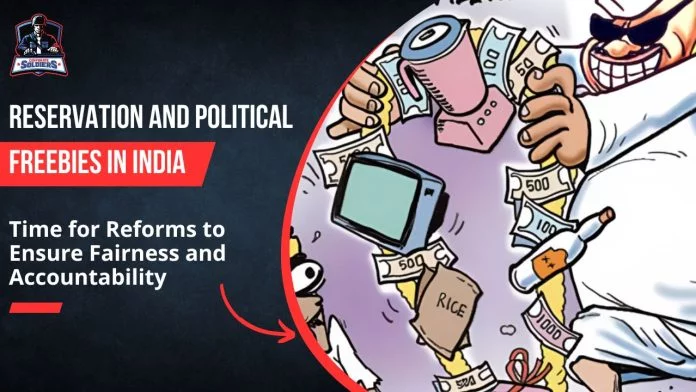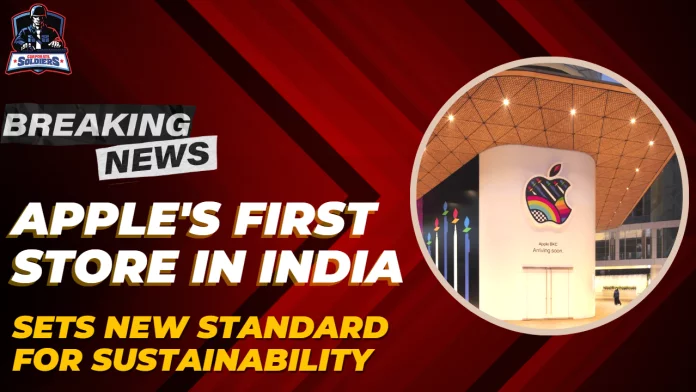Reservation and Political Freebies are two of the most debated topics in India. Reservation refers to a policy where a certain percentage of seats in government jobs and educational institutions are reserved for members of underprivileged communities. Political freebies, on the other hand, refer to the distribution of free goods and services by political parties to gain votes during elections. While these policies were introduced with the aim of uplifting the underprivileged sections of society, their implementation has often resulted in unintended consequences. This article will discuss the need for reforms in Reservation and Political Freebies in India.
The Need for Reforms in Reservation:
Reservation was introduced in India to provide equal opportunities to the underprivileged sections of society, who were historically oppressed and marginalized. However, over the years, the policy has been misused by some sections of society. One of the major concerns is the practice of taking benefits of reservation by multiple members of the same family.
In many cases, families with multiple children take advantage of reservation benefits for all their children, even if some of them are not deserving. This results in deserving candidates losing out on opportunities, leading to a feeling of resentment and frustration among them.
To address this issue, there is a need for reforms in the reservation policy. One of the proposed solutions is to limit the number of beneficiaries from a single family. This would ensure that deserving candidates get a fair chance, while also preventing the misuse of the policy.
Another proposed solution is to introduce economic criteria for reservation. Currently, reservation is based on social criteria such as caste and tribe. However, this often results in wealthy families taking advantage of the policy. Introducing economic criteria would ensure that only the truly deserving candidates from underprivileged backgrounds benefit from reservation.
The Need for Reforms in Political Freebies:
Political parties in India often distribute free goods and services such as laptops, TVs, and even cash to gain votes during elections. While this might seem like a good thing for the recipients, it has several negative consequences.
Firstly, it results in a culture of entitlement, where people expect freebies from the government. This leads to a lack of motivation to work hard and achieve success on their own.
Secondly, political freebies are often distributed without proper planning or evaluation. This results in a waste of public resources and a lack of accountability.
To address these issues, there is a need for reforms in the distribution of political freebies. Firstly, political parties should be required to provide a detailed plan and budget for the distribution of freebies. This would ensure that the resources are used effectively and efficiently.
Secondly, there should be a limit on the number of freebies that can be distributed by political parties. This would prevent the misuse of public resources and ensure that the focus remains on providing essential services such as healthcare and education.
Conclusion:
Reservation and Political Freebies were introduced with the aim of uplifting the underprivileged sections of society. However, their implementation has often resulted in unintended consequences. To address these issues, there is a need for reforms in these policies. The proposed solutions include limiting the number of beneficiaries from a single family and introducing economic criteria for reservation. Similarly, reforms in the distribution of political freebies should include a detailed plan and budget and a limit on the number of freebies that can be distributed. These reforms would ensure that public resources are used effectively and efficiently, and that deserving candidates get a fair chance.










